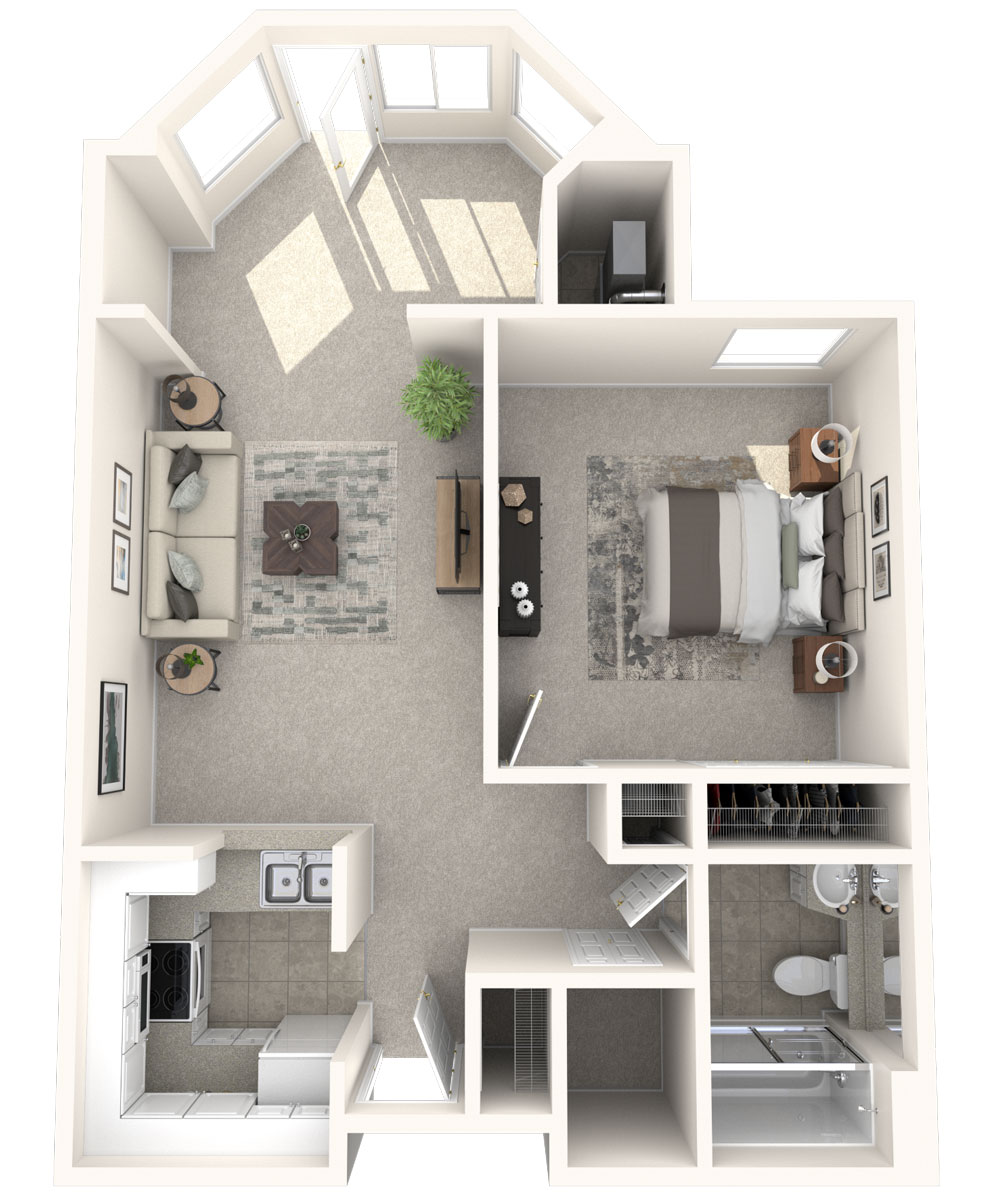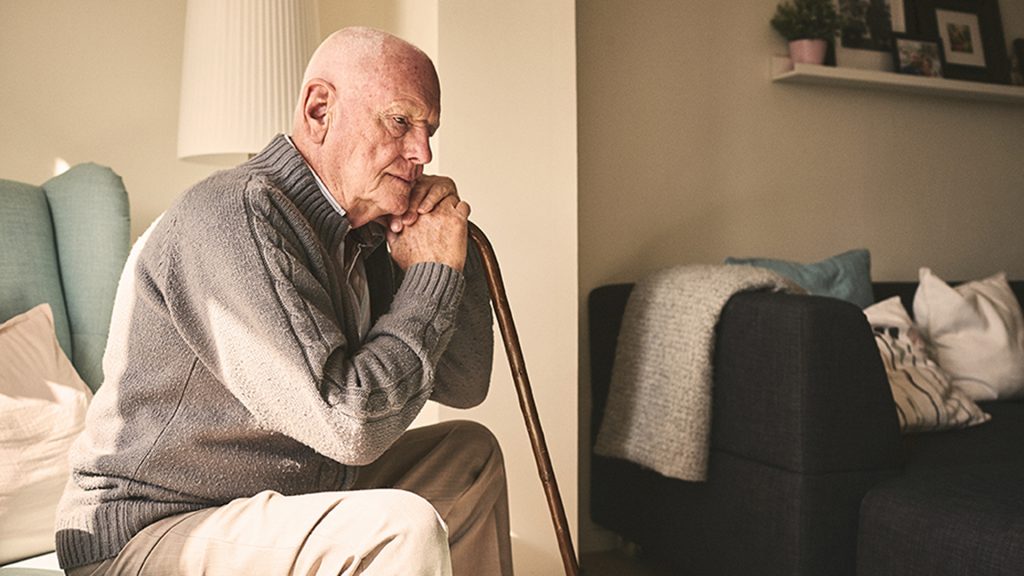One Bedroom Traditional – 700 square feet



What’s the difference between “Alzheimer’s disease” and “dementia”? Although many people use the words interchangeably, these two terms are actually very different from one another.
“Dementia” is a general term for loss of memory, language, problem-solving, and other thinking abilities that is severe enough to interfere with daily life. It’s currently the seventh leading cause of death worldwide and one of the major causes of disability and dependence among older people globally, with more than 55 million cases reported by the World Health Organization in 2023.
There are over 100 different types of dementia, with Alzheimer’s disease being the most well known form. While medicine is still uncovering different forms of dementia, there are 4 main types of dementia that make up the majority of cases: Alzheimer’s disease, vascular dementia, Lewy body dementia, and frontotemporal dementia.
Alzheimer’s disease is the most common type of dementia, making up 50%-75% of cases. What makes Alzheimer’s different from other forms of dementia (and what makes it easier to diagnose) is the structured progression of the disease.
Alzheimer’s disease first manifests as problems with memory or slight confusion, which can be confused as “senior moments” or a natural progression of aging. This is due to how plaques form and affect different parts of the brain. As the disease progresses, people with Alzheimer’s disease will increasingly lose the ability to perform daily activities, experience paranoia, have deteriorating physical abilities, and eventually require around-the-clock care.
Currently, there is no cure for Alzheimer’s disease, although there are many treatments that have been developed to help slow or stall the progression of the disease and improve quality of life for those affected.
Vascular dementia is the second-most common form of dementia. Unlike Alzheimer’s, which occurs from plaques forming in the brain and follows a rigid progression, vascular dementia – sometimes known as “post-stroke dementia” – occurs when parts of the brain are damaged due to cardiovascular problems, strokes, or other brain damage that occurs from lack of blood flow to the brain.
People with vascular dementia can experience everything from immediate, severe symptoms to small, slowly growing symptoms, depending on how the damage is occurring. In the case of mini-strokes, individuals may not even know they’re having strokes. Generally, vascular dementia affects a person by causing confusion, difficulty thinking or language problems. Vascular dementia often occurs alongside another form of dementia like Alzheimer’s or Lewy body dementia.
Lewy body dementia is another common type of dementia that is often confused with Alzheimer’s disease. One explanation for how to recognize LBD is that it’s a combination of Parkinson’s symptoms alongside Alzheimer’s disease symptoms.
The symptoms of Alzheimer’s disease and LBD are very similar, but there can be slight differences. Generally, a primary identifying factor of LBD is physical difficulties presenting before any sort of memory lapses and confusion. LBD very often is characterized by visual hallucinations, problems with sleep patterns, and fluctuating moments of clarity.
Frontotemporal dementia (FTD) occurs due to deterioration of the frontal and temporal lobes of the brain. FTD is unusual compared to other dementias, because FTD often occurs at a younger age.
Because of where the brain damage occurs, individuals with FTD often have significant mental changes early on in the disease. That’s because the frontal brain lobe hosts the executive functions of the brain such as planning, judging and analyzing. The temporal lobe affects behaviors and reactions.
People with FTD may suddenly show signs of poor judgment and the inability to control inhibitions, along with unexpected mood swings. Over time, the individual will emotionally withdraw and lose interest in their surroundings while verbal and communication skills continue to deteriorate.
While there are some forms of dementia that can be successfully reversed, the four main types of dementia can’t be cured. However, much progress has been made over the years with understanding the best treatments for the different forms of dementia, as well as a focused effort on holistic as well as pharmaceutical solutions that can greatly help improve the quality of life of the person for many years to come.
If you believe you or a loved one may have dementia or another cognitive decline issue, it’s important to see a doctor right away to be tested. An accurate diagnosis can be critical toward helping you or a loved one get the proper treatment. Although it can be scary to hear the words “you have dementia,” it’s entirely possible that the issues may be caused by something completely unrelated to dementia like a urinary tract infection or another underlying issue.
Even if you or a loved one is diagnosed with dementia, knowing earlier rather than later can significantly help improve quality of life now and in the future. There are many medications and treatments that work only when begun in the early stages of dementia. Other lifestyle changes, like eating a heart-healthy diet, getting exercise, and practicing good sleep habits, can help significantly reduce symptoms and set the person up for success in the future.
Finally, learning that you or a loved one has dementia can help you, your loved one, and your family plan for the future. Knowing that you have time to listen to your family’s and loved one’s wishes and make plans for future care can alleviate a lot of stress and allow you and your family to make the most of today and tomorrow .
If someone you love is living with Alzheimer’s disease or another form of dementia, The Heritage at Ginger Cove is a state-of-the art memory care community designed to make you feel at home. Our services are structured to help those living with memory loss feel engaged, supported, respected and honored in a beautiful environment that’s been created to maximize their quality of life, independence and daily joy. Call now to schedule a tour or to learn more about all Ginger Cove has to offer.